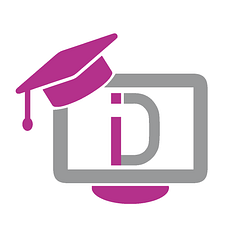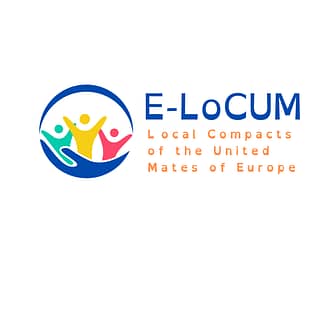Title: ”E-Locum – Local Compacts of the United Mates of Europe”
Project number: 2023-1-IT03-KA220-YOU-000161747
Partners:
- Italy – Consorzio Vives (Lead)
- Belgium – REVES aisbl – European Network of Cities & Regions for the Social Economy
- Romania – Organizatia Institutul Bucovina
- Belgium – Social Firms Europe CEFEC
- Slovenia – Društvo Humanitas
- Greece – Wind of Renewal
The general objective of the project is to empower young people along the Balkan route to foster a narrative on migration consistent with the EU values of unity, solidarity and non-discrimination.
3 specific objectives shall allow to meet it:
- Increasing youth awareness on the many aspects of migration
- Enhancing youth engagement on migrants’ inclusion in four EU regions along the Balkan route
- Increase youth participation particularly those with migrant background in policy-making on migratory issues
- The overall framework of the E-Locum – Local Compacts of the United Mates of Europe project wants to contribute to social cohesion with specific regard to the inclusion of migrants and refugees, by addressing the social capacity of the hosting communities.
In particular, the project aims at restructuring the polarized narrative on migration, calling to action young residents and their educators in at least 4 countries along the Balkan route: Italy, Greece, Slovenia and Romania, but also to prevent and counter disinformation among the youth.
__________________________________________________________________
Title: ”INTERACTIVE – DIGITAL READINESS for ALL EDUCATION MENTORS” (i-DREAM)
Project number: 2020-1-UK01-KA226-VET-094700

Partners:
- UK – KILCOOLEY WOMENS CENTRE
- Belgium – SFE CEFEC
- Poland – Fundacja Instytut Re-Integracji Spolecznej
- Spain – DOMSPAIN
- Netherlands – VI One Consultancy
- Cyprus – G.G. EUROSUCCESS CONSULTING LIMITED
Description: is an innovative intervention which will respond to the emerging issues impacting the training sector resulting from the European and worldwide pandemic COVID-19. It has been designed to deliver high level outcomes to participants and respond to the priorities in Vocational Education & Training. As a result of the global pandemic, the education and training community advanced circa 5 years in technological techniques in an 8 weeks period. Digital strategies were introduced almost overnight to ensure learning did not come to a complete halt, allowing what could continue, to be flipped to an online platform. During this period there was a varying range of quality in digital provision, which demonstrated the need of comprehensive overhaul of the digital delivery methodology going forward and to improve the digital readiness competencies of tutors/teachers.
More details about the project you can find on the dedicated website: www.facebook.com/IDream-Project
_______________________________
Title: Mentoring for Social Change and Life-long learning
Project number: 2020 – 1FR01 – KA204 – 079933

Partners:
- France – Ici & Ailleurs
- Belgium – SFE CEFEC
- Bulgaria – European Development Foundation
- Spain – STP Consulting
- Romania – Institutul Bucovina
- Slovenia – UPI-ljudska univerza Žalec
Description: focuses on innovative use of mentoring for social change and life-long learning. It will allow adult educators, teachers, tutors, mentors and entrepreneurs from 6 different countries to exchange good practices ranging from using mentoring for community development and social inclusion of vulnerable groups through mentoring youth and social entrepreneurs, to CSR-based mentoring and involving 50+ professionals in mentoring activities.
The overall objective of our project is to improve competences of adult educators, trainers, tutors, mentors and business and social entrepreneurs in the areas of motivational literacy and effective use of innovative lifelong learning solutions. In this way, we want to help them create unique and tailor-made educational experiences for their learners.
More details about the project you can find on the dedicated website: https://mlearnproject.eu/
The M-LEARN Best Practices Guide
MLearn Best Practices Guide_FINAL____________________________________________
Title: The use of digital media in social firms practice: a European comparison
Project number: 2018-1-DE02-KA202-005067

Partners:
- Germany – Diözesan-Caritasverband für das Erzbistum Köln – Leader
- Belgium – SFE CEFEC
- Greece – Koispe Diadromes
- Romania – Fundația Creștină Diakonia Filiala Sfântu Gheorghe
- Romania – Institutul Bucovina
- Lithuania – Labdaros ir paramos fondas ”Pagalbos namuose tarnyba”
Description: the strategic partnership centres on the professional exchange of information on digital training issues in the context of social firms and on the familiarisation with good working practices in the participating European countries. To this end, a cross border dialogue is to be set up and specific relationships initiated throughout the cooperation. The partnership pursues the objective of communicating new, definite findings a
nd ideas to the involved organisations on how to deal with the opportunities provided and the challenges posed by digitisation in their social firms.
In this respect
, the emphasis is placed on two aspects:
a) the opportunities that digitisation can provide specifically for training work with the underprivileged on the labour market, with respect to both vocational and personnel qualifications (e.g. by means of technical aids, standardisation of work routines, social learning, game based learning);
b) the risks that digitisation may entail in each of the partner countries for employees and specifically for the underprivileged on the labour market (e.g. privatisation of labour, displacement of low grade jobs, etc.).
More details about the project you can find on the dedicated website: http://www.digi4se.eu/

